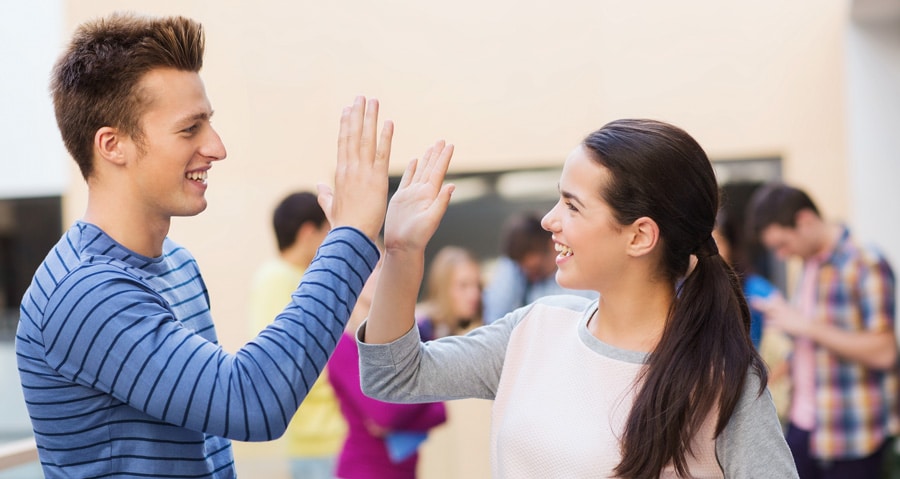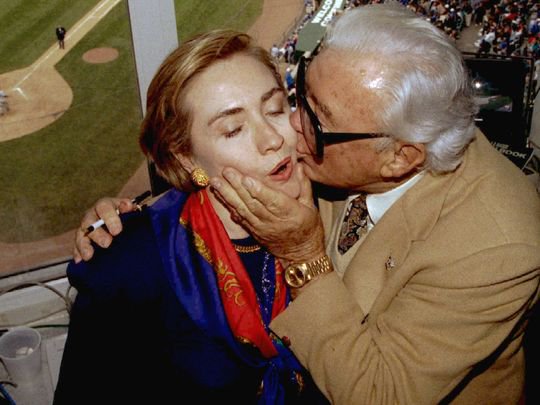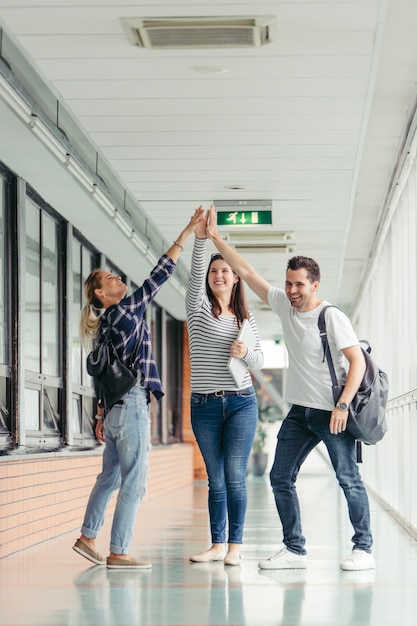Corona virus and personal relationships: Will kissing, shaking hands or hugging be considered a vice in the future?
Corona virus and personal relationships: Will kissing, shaking hands or hugging be considered a vice in the future?

In any normal week, it is difficult for us to count how many times we have had physical contact with other human beings.
For many people living apart and alone in the Code 19 era, this may be the longest period of their lives in which they have been without contact with any human for so many days.
The vast distances we see between human beings these days are hopefully a permanent change. But now that most countries are ending their lockdown, we have a dilemma as to how to get back to normal life and how to get together so that we can be safe and hurt someone's feelings. Don't deliver

For months we have been practicing maintaining a social distance and trying to stay at least two meters away from each other. At the same time, we are avoiding touching and coughing and sneezing on surfaces and objects in public places.
Manifestations of politeness and love It has been difficult to end the experience of lifelong learned social norms: in many cultures, when we welcome new people, we shake hands with those who are very close to us. They embrace and literally reach out to anyone who needs help.
Now we are preparing to go out again where all these habits may have to stop! French kisses can spread the disease. The enthusiastic welcome of the Italians could be more dangerous. Methods of touching may no longer be acceptable, and with it the methods of physical contact we have learned may change.

Robin Dunbar, a professor of evolutionary psychology at Oxford University, says it will be difficult.
"Physical touch is part of the way we use it to build our relationships, friendships and family relationships," he said. "It's all part of our ancient history as primates, in which we have been exposed to skin." The endorphin system is activated in the brain, which causes us to feel warm and positive.
And when we try to adapt to a new routine, it can cause confusion and anxiety.
The biggest change we can see in the case of the handshake is because its existence is being questioned in many headlines.
Kerry Cooper, a professor of organizational psychology and health at Manchester Business School, says: "Things like touching or whispering in people's ears will disappear for a while and make communication a little more complicated." People can misinterpret things because you don't have clues to explain. "
However, we are already considering ways in which we can work in this new world, and we are learning a lot from television programs during the lockdown. Shows around the world have seen show hosts sitting at a distance and highlighting the importance of staying away.

Erica Hughes of the University of Portsmouth says, "Everyone is imagining being together, even though they're really apart."
In contrast, when we look at programs developed before the social distance, we feel this change.
The sight of crowds in bars, nightclubs, and shopping centers strikes us as shocking and bizarre, a sign that our brains are preparing to accept social distance. And it's getting new wiring.
It reflects a broader concern around the world about the dangers of returning to social contact. According to a public opinion poll, only 6% of Britons want to reopen a closed business even if the virus is not completely eradicated, while 72% strongly oppose a return to normalcy. 60% of Australians and Americans, 69% of Canadians, 53% of French and Brazilians and 42% of Chinese do not want to reopen society until the virus is dealt with.
"The recent epidemic has changed everything about us, especially how we can stay socially connected," says psychologist Bhawana Jani Negandhi. "People have accepted the challenge." What is and has tried to maintain social connections in creative ways, but it has been different and it can be difficult to adopt new social ways.

Many of the changes in life now are being called 'unprecedented'. For example, the French Minister of Health has advised citizens to refrain from kissing because of Code 19. But we have seen such things before. Earlier, in the 15th century, King Henry VI of England banned kissing to prevent the spread of the Bobonic plague.
Infections can also have a dark side to a loved one. When HIV or AIDS first surfaced and had positive results, it was seen as a stigma. Many people feared that if they came in contact with an HIV or AIDS patient, they too could get the disease.
However, there was strong evidence that the infection was sexually transmitted.
Princess Diana shakes hands with a patient being treated for HIV or AIDS at London's Middlesex Hospital in 1987
It was in this context that Princess Diana shook hands with a patient being treated for HIV or AIDS at London's Middlesex Hospital in 1987 to deal with the stigma.
Similarly, TB patients are being treated differently around the world, including keeping as much distance from them as possible. In addition, leprosy sufferers have a long history of being excluded from society, but over time and as a result of the campaign against those who spread falsehoods, attitudes have changed, as many people are now HIV positive. Do not hesitate to embrace.

How long will our new attitudes last if the expected vaccine for corona virus comes to light and physical contact with people outside our immediate domestic 'environment' is secured?
"I doubt there will be any change in the near future, but over time it will disappear," says Dunbar. Has already adopted
The biggest change we can see in the case of the handshake is that its existence is being questioned in many headlines. But Deborah says it could be too early. "It's so ingrained in us, it's hard for people not to reach out for a handshake," he says.
Cooper agrees. "I don't see an alternative to a handshake in the near future," he said. There are many different methods, including touching the foot and hitting the elbow, but since it is unnatural to do so, it cannot last long.
Even if less communicative ways of welcoming are adopted, the grief of what we are losing will not diminish. It has been difficult for Hughes to suppress her desire to visit him when she is shopping for groceries and when she sees an acquaintance. "It's always painful not to be able to cross that line, even though we know we don't have to," she says. Although she doesn't see it as the grief of losing a friend, it's something important in a relationship. As the saying goes.

"I think we're losing the sense of what to do when you naturally want to hug someone," she says.
Johnny Negandhi says, "We can change the way we interact with others and take a more cautious approach, based on our own experience of the epidemic and its effects individually."
Things like touching or whispering in people's ears will disappear for a while
But before we mourn the loss, it is important to think about what we can gain from it. Maybe the first kiss will feel more effective because it will have its own new significance. Aircraft that are packed for profit are more tolerable when new space rules are introduced. It will be more important to give a hug to someone when you think about who you are hugging and thus it will be more important to put a loving hand on someone's shoulder.
Hughes predicts a future in which we will divide our social groups into many circles. There will be an inner circle that will include the people we are willing to touch and an outer circle that we will be wary of. "When you have to touch someone, you value it," she says. What is in Western society will go beyond that, and what is clearly slack here will be further confirmed.

This does not mean that change will be easy. "It's heartbreaking," Hughes said. Many cultures have really beautiful ways of communicating that don't involve touching. But to change something as big as a hug or a kiss on the cheek, I think a new choreography will be needed. '
"We have alternative ways to meet," said Hughes, who hails from South America. When she drives to her village to visit her parents, people are seen shaking hands and shaking their heads along the way, and they feel as if their home is welcoming them. "You may have to get out of the car," she says.
Dunbar has a few words of hope for those who are worried about lack of physical contact. "Touching is not the only way to express physical contact," he says. The evolution of our primitive ancestors has given us even new ways to feel connected to others that trigger endorphins. They say that these things are like laughing, singing, dancing, telling stories, religious rituals and so on. And these are the things we use in our daily social life. "

So if we are still careful about physical contact for some time Staying but being physically away doesn't mean we can't feel close.

In any normal week, it is difficult for us to count how many times we have had physical contact with other human beings.
For many people living apart and alone in the Code 19 era, this may be the longest period of their lives in which they have been without contact with any human for so many days.
The vast distances we see between human beings these days are hopefully a permanent change. But now that most countries are ending their lockdown, we have a dilemma as to how to get back to normal life and how to get together so that we can be safe and hurt someone's feelings. Don't deliver

For months we have been practicing maintaining a social distance and trying to stay at least two meters away from each other. At the same time, we are avoiding touching and coughing and sneezing on surfaces and objects in public places.
Manifestations of politeness and love It has been difficult to end the experience of lifelong learned social norms: in many cultures, when we welcome new people, we shake hands with those who are very close to us. They embrace and literally reach out to anyone who needs help.
Now we are preparing to go out again where all these habits may have to stop! French kisses can spread the disease. The enthusiastic welcome of the Italians could be more dangerous. Methods of touching may no longer be acceptable, and with it the methods of physical contact we have learned may change.

Robin Dunbar, a professor of evolutionary psychology at Oxford University, says it will be difficult.
"Physical touch is part of the way we use it to build our relationships, friendships and family relationships," he said. "It's all part of our ancient history as primates, in which we have been exposed to skin." The endorphin system is activated in the brain, which causes us to feel warm and positive.
And when we try to adapt to a new routine, it can cause confusion and anxiety.
The biggest change we can see in the case of the handshake is because its existence is being questioned in many headlines.
Kerry Cooper, a professor of organizational psychology and health at Manchester Business School, says: "Things like touching or whispering in people's ears will disappear for a while and make communication a little more complicated." People can misinterpret things because you don't have clues to explain. "
However, we are already considering ways in which we can work in this new world, and we are learning a lot from television programs during the lockdown. Shows around the world have seen show hosts sitting at a distance and highlighting the importance of staying away.

Erica Hughes of the University of Portsmouth says, "Everyone is imagining being together, even though they're really apart."
In contrast, when we look at programs developed before the social distance, we feel this change.
The sight of crowds in bars, nightclubs, and shopping centers strikes us as shocking and bizarre, a sign that our brains are preparing to accept social distance. And it's getting new wiring.
It reflects a broader concern around the world about the dangers of returning to social contact. According to a public opinion poll, only 6% of Britons want to reopen a closed business even if the virus is not completely eradicated, while 72% strongly oppose a return to normalcy. 60% of Australians and Americans, 69% of Canadians, 53% of French and Brazilians and 42% of Chinese do not want to reopen society until the virus is dealt with.
"The recent epidemic has changed everything about us, especially how we can stay socially connected," says psychologist Bhawana Jani Negandhi. "People have accepted the challenge." What is and has tried to maintain social connections in creative ways, but it has been different and it can be difficult to adopt new social ways.

Many of the changes in life now are being called 'unprecedented'. For example, the French Minister of Health has advised citizens to refrain from kissing because of Code 19. But we have seen such things before. Earlier, in the 15th century, King Henry VI of England banned kissing to prevent the spread of the Bobonic plague.
Infections can also have a dark side to a loved one. When HIV or AIDS first surfaced and had positive results, it was seen as a stigma. Many people feared that if they came in contact with an HIV or AIDS patient, they too could get the disease.
However, there was strong evidence that the infection was sexually transmitted.
Princess Diana shakes hands with a patient being treated for HIV or AIDS at London's Middlesex Hospital in 1987
It was in this context that Princess Diana shook hands with a patient being treated for HIV or AIDS at London's Middlesex Hospital in 1987 to deal with the stigma.
Similarly, TB patients are being treated differently around the world, including keeping as much distance from them as possible. In addition, leprosy sufferers have a long history of being excluded from society, but over time and as a result of the campaign against those who spread falsehoods, attitudes have changed, as many people are now HIV positive. Do not hesitate to embrace.

How long will our new attitudes last if the expected vaccine for corona virus comes to light and physical contact with people outside our immediate domestic 'environment' is secured?
"I doubt there will be any change in the near future, but over time it will disappear," says Dunbar. Has already adopted
The biggest change we can see in the case of the handshake is that its existence is being questioned in many headlines. But Deborah says it could be too early. "It's so ingrained in us, it's hard for people not to reach out for a handshake," he says.
Cooper agrees. "I don't see an alternative to a handshake in the near future," he said. There are many different methods, including touching the foot and hitting the elbow, but since it is unnatural to do so, it cannot last long.
Even if less communicative ways of welcoming are adopted, the grief of what we are losing will not diminish. It has been difficult for Hughes to suppress her desire to visit him when she is shopping for groceries and when she sees an acquaintance. "It's always painful not to be able to cross that line, even though we know we don't have to," she says. Although she doesn't see it as the grief of losing a friend, it's something important in a relationship. As the saying goes.

"I think we're losing the sense of what to do when you naturally want to hug someone," she says.
Johnny Negandhi says, "We can change the way we interact with others and take a more cautious approach, based on our own experience of the epidemic and its effects individually."
Things like touching or whispering in people's ears will disappear for a while
But before we mourn the loss, it is important to think about what we can gain from it. Maybe the first kiss will feel more effective because it will have its own new significance. Aircraft that are packed for profit are more tolerable when new space rules are introduced. It will be more important to give a hug to someone when you think about who you are hugging and thus it will be more important to put a loving hand on someone's shoulder.
Hughes predicts a future in which we will divide our social groups into many circles. There will be an inner circle that will include the people we are willing to touch and an outer circle that we will be wary of. "When you have to touch someone, you value it," she says. What is in Western society will go beyond that, and what is clearly slack here will be further confirmed.

This does not mean that change will be easy. "It's heartbreaking," Hughes said. Many cultures have really beautiful ways of communicating that don't involve touching. But to change something as big as a hug or a kiss on the cheek, I think a new choreography will be needed. '
"We have alternative ways to meet," said Hughes, who hails from South America. When she drives to her village to visit her parents, people are seen shaking hands and shaking their heads along the way, and they feel as if their home is welcoming them. "You may have to get out of the car," she says.
Dunbar has a few words of hope for those who are worried about lack of physical contact. "Touching is not the only way to express physical contact," he says. The evolution of our primitive ancestors has given us even new ways to feel connected to others that trigger endorphins. They say that these things are like laughing, singing, dancing, telling stories, religious rituals and so on. And these are the things we use in our daily social life. "

So if we are still careful about physical contact for some time Staying but being physically away doesn't mean we can't feel close.
Comments
Post a Comment